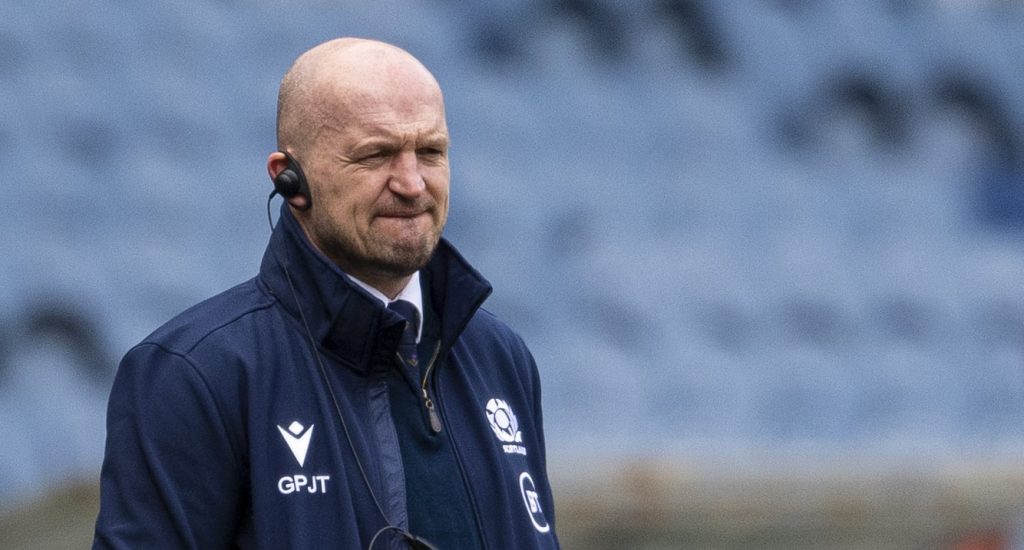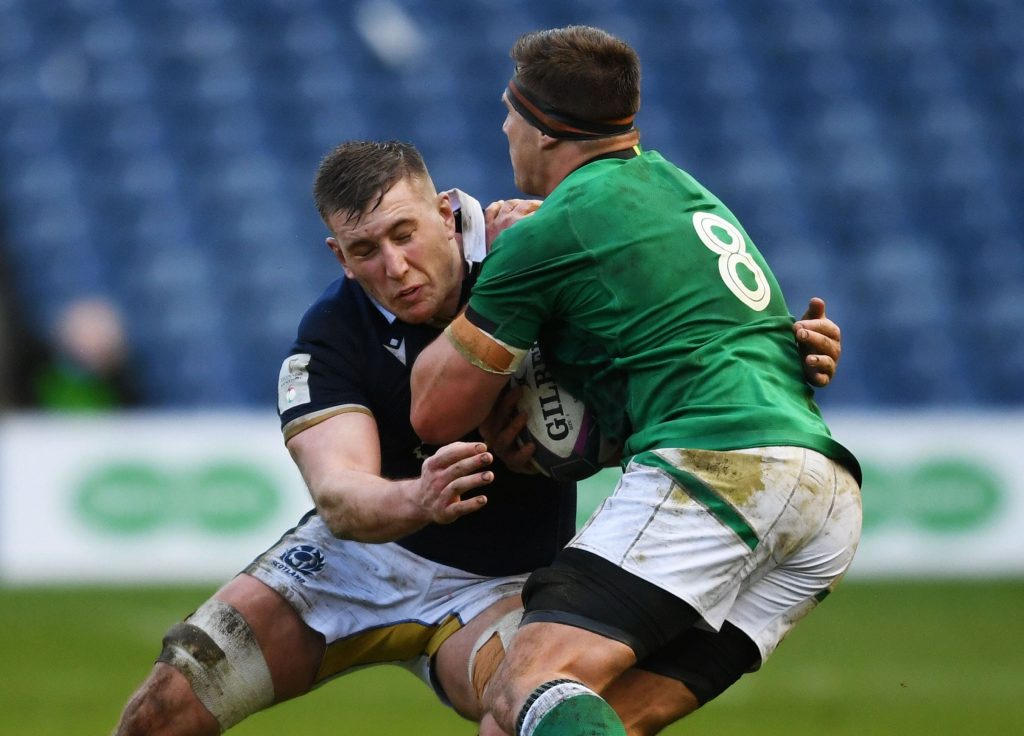For an age now, Scotland fans have been living a perpetual nightmare, a cycle of doom so sure in its repetition that you could set your watch by it. The fleeting hope, the simmering anticipation, the false dawn, and the eventual, inexorable, crushing agony.
Will this team – by common consent, the best Scotland has had since the champions of 1999 – ever amount to anything? Will they someday, any day, turn their litany of near misses into something tangible and joyous? At this point, after two gut-wrenchers against Wales and Ireland at Murrayfield, you really do fear it will never happen for them.

Gregor Townsend can put forward mitigating circumstances, which, to the coach’s credit, he has not sought to do. Zander Fagerson’s red card against Wales; a month without a Test match prior to playing Ireland; erratic refereeing in both Tests. He has learned from the heinous lessons of Japan 2019, but how could he not? He has brought more structure and snarl to a game plan that was too ambitious but the evolving sport and circumstance demanded that of him.
That painful loss on Sunday was this team in microcosm, capable of the magnificent and the maddening. Ireland, as limited an attacking side as they have been under Andy Farrell were rugged and streetwise as ever, while Scotland were desperately short on both.
Questions remain, and big ones at that. Townsend has the best win rate of any Scottish coach in the professional era, he has seen off England, France and Australia twice apiece, smashed great, bruising hoodoos at Twickenham and in Cardiff and pushed the All Blacks and Springboks all the way, but are the improvements enough? Would another coach do better, or are the players at Townsend’s disposal plainly poorer than their counterparts on these isles? With their depth – a player puddle rather than a player pool – and resources, are Scotland precisely where they should be in the world order?
That painfully familiar loss on Sunday was this team in microcosm, capable of the magnificent and the maddening. Ireland, as limited an attacking side as they have been under Andy Farrell were rugged and streetwise as ever and Scotland, yet again, desperately short on both.

Last week, Paul O’Connell took a microscope to their line-out. At Murrayfield, his players put a sledgehammer through it. Scotland won two and lost six on their own throw. A 25% line-out success rate is beyond awful. It has no place in Test rugby, certainly among teams talked about as title contenders. Scotland did not have a sure-thing jumper in there, a Richie Gray type to guarantee secure ball when the set-piece was creaking.
The penalty count has not so much risen from the precision discipline of Twickenham as soared, from six in the howitzer in Richmond to 11 apiece against Wales and England.
Scotland were beaten in the air under Ireland’s bombardment, beaten on the ground too often by the colossal Tadhg Beirne, beaten in their ability to manage Romain Poite’s idiosyncrasies.
The Russell-Sexton narrative is a little misleading, for it is quite possible that Warren Gatland sees neither as his Test 10. Sexton did what Sexton does so devilishly well, even as his temples grey and his body wearies.
How many individual battles did Scottish players win and in how many were they bested by their Irish opposites? Of all the match-ups pitting Lions against would-be Lions, CJ Stander against Matt Fagerson, Beirne against Jamie Ritchie, Tadhg Furlong against Rory Sutherland, Iain Henderson and James Ryan against Scott Cummings and Jonny Gray, Johnny Sexton against Finn Russell and Robbie Henshaw against Sam Johnson, the boys in green bossed pretty much the lot. Only the irrepressible Hamish Watson emerged with his reputation enhanced.
The Russell-Sexton narrative is a little misleading, for it is quite possible that Warren Gatland sees neither as his Test 10. Sexton did what Sexton does so devilishly well, even as his temples grey and his body wearies. Russell is not some hair-brained teenager who does what he pleases and cares not for the consequences, as some lazy observers might have you believe, but it is hard to see Gatland hanging his hat on the fly-half come the white-hot business of a Lions series. This was a huge opportunity for Russell to press his case, and the Scot couldn’t make it happen.
 Matt Fagerson of Scotland” class=”wp-image-11151″ />
Matt Fagerson of Scotland” class=”wp-image-11151″ />The bit that cuts deepest in all of this is not the sickening self-harm in the loss to Wales, nor the grim familiarity of the Irish defeat. No, those are wounding, of course. Anger-inducing, too, no doubt. But the worst thought is that this tournament promised so much after a win as close to perfection in its crafting as anything in the Townsend era. Everything looked so thunderously possible after Twickenham. Wales, Ireland and Italy at home; a crack at France in Paris. Suddenly, the whole thing looked positively tantalising. It was never going to be easy but if there was ever a year where Scotland might turn promise into success, then boy did it seem like 2021 would be it. In isolation, on their day, Townsend has Scotland an excellent team, but those days are too disparate and the inconsistency too telling.
Again, Scotland have been exposed in the ruthless trenches of championship rugby. Again, talk of improvement is dynamited by reality. Again, the cycle repeats.
More stories from Jamie Lyall
If you’ve enjoyed this article, please share it with friends or on social media. We rely solely on new subscribers to fund high-quality journalism and appreciate you sharing this so we can continue to grow, produce more quality content and support our writers.


Comments
Join free and tell us what you really think!
Sign up for free